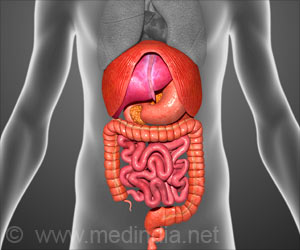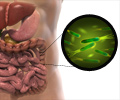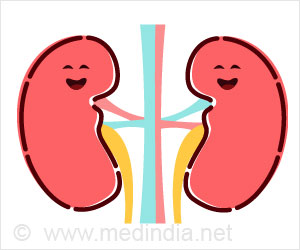Probiotics, influencing the brain-gut axis, show potential for addressing cognitive impairment, as demonstrated in ongoing research.
- Individuals with mild cognitive impairment experienced improved cognitive test scores after being administered a probiotic over a span of 30 days
- Participants who received the probiotic exhibited a reduction in the presence of a particular type of bacteria linked to cognitive decline within their gut microbiome
- These findings indicate that the manipulation of gut bacteria holds promise as a strategy for addressing cognitive impairment and other enduring health conditions
Could probiotics help slow age-related cognitive decline?
Go to source).
Emerging research proposes that manipulation of gut bacteria use probiotics might offer a potential avenue for tackling cognitive impairment and related conditions.
Probiotic Treatment and Cognitive Function Recovery
A total of 169 participants between the ages of 52 and 75 were enrolled in the clinical trial. Those without cognitive impairment constituted the control group, while individuals with cognitive issues formed the other group.Both groups were subjected to either LGG or a placebo for three months, with no adverse effects reported in either group.
This clinical trial has presented evidence suggesting that the utilization of a probiotic treatment could potentially foster cognitive function recovery in individuals with mild cognitive impairment (MCI).
Given the global upswing in dementia and Alzheimer's disease, Mashael R. Aljumaah, the lead author of the study and a microbiology doctoral candidate at the University of North Carolina at Chapel Hill, emphasizes the urgent necessity for further research.
In the course of a double-blind randomized trial, individuals affected by cognitive impairment were administered a daily probiotic, namely Lactobacillus rhamnosus GG, for a three-month duration, leading to enhanced cognitive test performance.
Lead study author Mashael R. Aljumaah underscores that LGG bacteria exhibited potential as a therapeutic probiotic, as underscored by numerous prior animal studies showcasing its positive impact on various physiological conditions. LGG's acid tolerance and capacity for gut adhesion further enhance its effectiveness as a probiotic.
In the context of mild cognitive impairment, the study sought to compare individuals affected by this condition with those who were not.
The researchers aimed to observe, understand, and potentially influence the initial stages of cognitive decline. This endeavor included the identification of biomarkers that might signify the onset of cognitive impairment.
Understanding the Role of Prevotella and Gut Microbiome Rebalancing
Aljumaah and her colleagues identified a biomarker, Prevotella, in individuals with cognitive impairment. The reduction of its presence following the administration of LGG suggests the possibility of a microbiome rebalancing strategy with potential therapeutic implications for cognitive impairment.The role of the Prevotella family of microbiota, although present in individuals with cognitive decline, is not entirely understood, as explained by Aljumaah. Prevotella bacteria have been linked to autoimmune and inflammatory diseases as well as cognitive impairment. This bacterium is frequently found in individuals with conditions such as rheumatoid arthritis (RA) and inflammatory bowel diseases like Crohn's disease.
Furthermore, Prevotella bacteria are associated with metabolites crucial for gut health and may play a role in fiber processing due to their origin in plant-based foods. Aljumaah highlights the question of whether specific species or strains within the Prevotella genus contribute to these conditions, or if certain genetic traits or mechanisms are accountable. Dr. Santosh Kesari, a certified neurologist and director of neuro-oncology at the Pacific Neuroscience Institute in Santa Monica, CA, who was not involved in the study, finds the observed cognitive benefits intriguing. However, he calls for more expansive studies to validate these findings and ensure the absence of toxicities associated with introducing LGG bacteria.
He also expresses concern about the potential for adverse effects resulting from attempts to rectify an issue by introducing a probiotic into the gut microbiome, which could disrupt the bacterial equilibrium.
Aljumaah points out that our comprehension of the intricate mechanisms connecting the gut microbiome to cognitive health is still in its infancy. She suggests several potential pathways linking these two distant body areas, such as the vagus nerve and the immune system.
Metabolites like short-chain fatty acids and neurotransmitters produced in the gut microbiome might also play a role.
Dr. Kesari proposes that the impact of the microbiome on brain function might be more indirect, given its influence on overall bodily health. The microbiome serves as a gateway for nutrients and plays a pivotal role in metabolism.
The microbiome stands as a challenging yet exciting frontier in the realm of human health. However, as exemplified by Prevotella, its study is complex. Dr. Kesari believes that we may eventually grasp the microbiome sufficiently to safely and effectively manipulate or re-balance its constituents.
He highlights the pressing need to address major health issues related to nutrition and obesity, suggesting that if probiotics can contribute to maintaining health, they could alleviate healthcare burdens.
Reference:
- Could probiotics help slow age-related cognitive decline? - (https://nutrition.org/could-probiotics-help-slow-age-related-cognitive-decline/)
Source-Medindia















